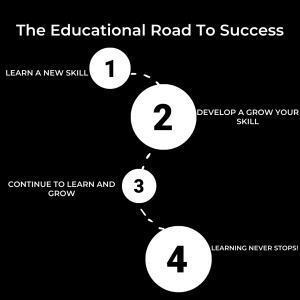How to Pick the Right College for Your Future
It’s a sure thing you have already heard that choosing a college is one of the critical decisions to make in life. And, that is true!
However, most students choose a college according to their gut feeling, emotion, or a limited set of criteria. Bear in mind that the college you choose comes with a lasting impact on both your professional and personal life. You want to walk that stage in your graduation regalia feeling proud of the decision that you have made about your college.
Picking the right college for your future is not all about the diploma. A college can touch the different aspects of your life, from academic development to social relationships.
If you are still unsure of which college to pick, keep reading!
- Build A Short List
Like any other decision-making process, a shortlist of colleges you want to attend is advantageous. When crafting the list, ensure to think about the location, programs and majors, and enrollment size. You also need to consider the cost, selectivity, people on campus, and opportunities offered outside the classroom.
- Consider and Needs
Another important part of selecting the right college is ranking your priorities. You can start by weighing a specific school’s pros and cons. When you are thinking about the school you will spend the next four or longer years, consider your wants and needs.
- Start Early on the Application Process
Applications often are due by the first month of the year for the fall admission, but the deadlines still vary depending on the institution. The earlier you started the application process, particularly during your senior year of high school, the better. That way, you have enough time to visit colleges, take standardized tests, or ask for a letter of recommendation.
- Take A Campus Tour
Once your applications are submitted, consider visiting the colleges; it can enable you to delve deeper into what each institution offers. During these visits, ask detailed questions about academics and student support services. Additionally, pay attention to the cleanliness of the campus. Note if they maintain high standards of hygiene through janitorial cleaning services. You should also consider observing the campus rules and student etiquette in action as these can provide insight into the overall environment and culture of each college. Remember, these visits can help you gather comprehensive information about making the right career choice.
- Focus on Financial and Job Outlook
Next is to pinpoint the reasonable financial and job outlook. Then, consider a college that can help you reach those goals best. Figure out if that prospect school can make you have a loan burden. If yes, determine if choosing another school can free you from any loan burden.
Remember that tuition costs largely vary by college. An in-state public college has a lower sticker price than a private school.
- Familiarize the Departments
Do not forget to research the departments you would be studying. Determine if a school is a better choice for your major. It is also essential to know if the faculty actively engage in the field and at the school. You can try visiting college websites and communicating with the faculty to get more information.
- Investigate the College’s Job Connections
Ask about the counselor-to-student ratio, on-campus interview opportunities, and job fairs. A college’s career center offers different services. So, it will help you develop soft skills since it promotes internship leads, explains the different hiring process, conducts mock interviews, and even provide employment and salary data.
- Make A Careful Financial Aid Packages Comparison
Comparing different financial aid awards will help you find a college that will leave you little or no debt after graduation. Besides looking into the tuition costs, ensure to consider other fees. Understand the difference between loans and free money (scholarships, grants, etc.). Some colleges provide financial aid awards that can meet all your financial needs. So, you do not need to take out loans.
- Dwell on the Rejection
It is a challenging experience to discover that you were not accepted to your top-choice college. However, you need to dwell on that rejection. Beware that some colleges are highly selective, while others have good admission odds. So, just enjoy the selection process and stay positive.
Conclusion
The college selection process is a huge undertaking that involves different factors to consider. Ensure to give the process thoughtful consideration or enough time to prevent stress and end up with the right college. Overall, you need to consider your priorities, focus on your goals, and most importantly, enjoy the entire process.


